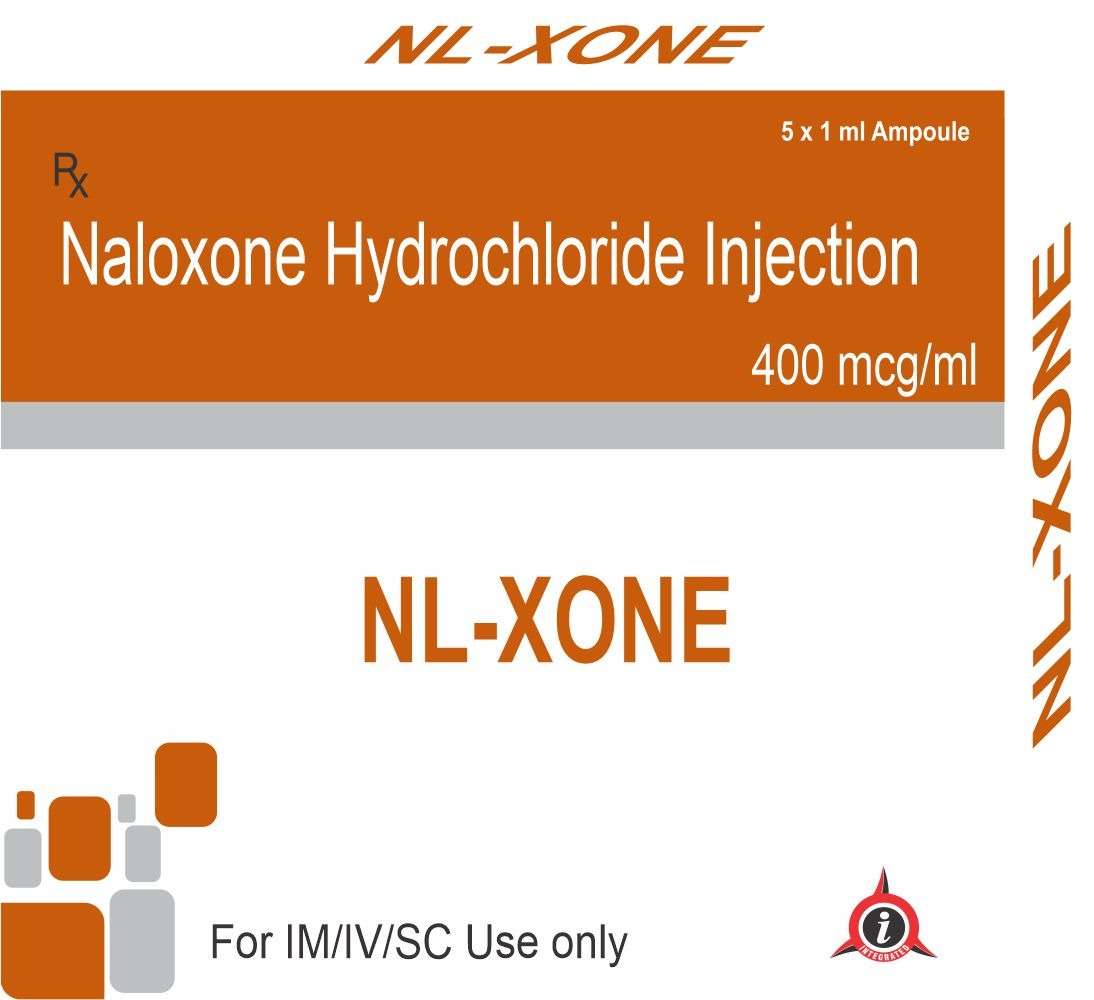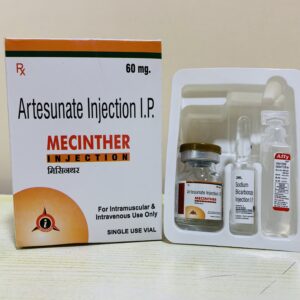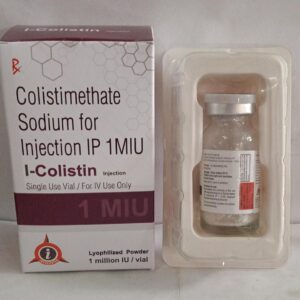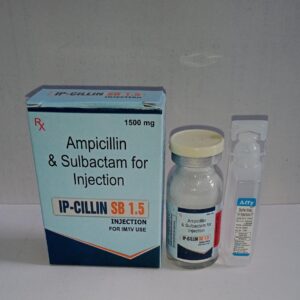Description
Description
Naloxone Hydrochloride Injection 400mcg is an opioid antagonist used to rapidly reverse the effects of opioid overdose. It is an injectable form of naloxone, a medication designed to counteract life-threatening respiratory depression and sedation caused by opioid toxicity. This medication is crucial in emergency settings and is often used in both hospital and pre-hospital environments.Mechanism of Action
Naloxone Hydrochloride works by:- Opioid Receptor Antagonism: Naloxone competes with opioids for binding to opioid receptors in the brain, specifically the mu, kappa, and delta receptors. By displacing opioids from these receptors, naloxone reverses the effects of opioid agonists.
- Restoration of Respiratory Function: By reversing opioid-induced respiratory depression, naloxone helps restore normal breathing patterns in patients who have overdosed on opioids.
Uses of Naloxone Hydrochloride Injection 400mcg
- Opioid Overdose: Primarily used to reverse opioid overdose, including cases involving heroin, morphine, fentanyl, oxycodone, and other opioids.
- Respiratory Depression: Effective in managing severe respiratory depression caused by opioid use, whether accidental or intentional.
- Emergency Situations: Administered in emergency settings by healthcare professionals or first responders to quickly counteract the effects of opioids.
Benefits of Naloxone Hydrochloride Injection 400mcg
- Rapid Reversal of Opioid Effects: Provides immediate relief from opioid overdose symptoms, restoring normal breathing and consciousness within minutes.
- Life-Saving: Crucial in preventing deaths due to opioid overdose, making it a vital component of emergency medical care.
- Ease of Use: Can be administered quickly in emergency situations, making it accessible for both medical professionals and trained laypersons.
Side Effects of Naloxone Hydrochloride Injection 400mcg
- Common Side Effects: Nausea, vomiting, and sweating.
- Serious Side Effects: Rapid withdrawal symptoms in opioid-dependent individuals, such as agitation, severe pain, or increased heart rate.
- Less Common Effects: Allergic reactions, including rash or difficulty breathing.
Expert Advice
- Administration: Naloxone Hydrochloride Injection should be administered by a trained healthcare professional or, in emergency situations, by first responders or bystanders who have received appropriate training.
- Dosage and Monitoring: Dosage may vary depending on the severity of the overdose and the specific opioid involved. Monitoring of the patient’s respiratory status and vital signs is essential after administration.
- Patient Follow-Up: Patients who respond to naloxone should be monitored for potential recurrence of opioid effects, as naloxone’s duration of action may be shorter than that of some opioids.
FAQs about Naloxone Hydrochloride Injection
-
How quickly does Naloxone Hydrochloride Injection work?
- Answer: Naloxone Hydrochloride Injection typically starts to reverse opioid effects within 1-2 minutes of administration. The onset can be rapid, making it effective for acute overdose situations.
-
Can Naloxone Hydrochloride Injection be used for non-opioid overdoses?
- Answer: No, Naloxone Hydrochloride is specifically effective for opioid overdoses. It does not reverse the effects of other types of drug overdoses.
-
Are there any interactions with other medications?
- Answer: Naloxone does not have significant interactions with other medications, but its use in conjunction with other treatments for opioid addiction should be carefully monitored by healthcare providers.
-
What should I do if the patient does not respond to Naloxone Hydrochloride Injection?
- Answer: If there is no response to naloxone, additional doses may be required, or alternative diagnoses should be considered. Seek immediate medical attention and follow established protocols for opioid overdose management.
-
Can Naloxone Hydrochloride Injection be used in pediatric patients?
- Answer: Yes, Naloxone Hydrochloride can be used in pediatric patients in cases of opioid overdose. Dosage should be carefully adjusted based on the child’s weight and clinical condition, and administration should be supervised by a healthcare professional.
Check Out Our Other Running Products:-
Ursodeoxycholic Acid Tablets 300 Mg (Doxchlo)
Aztreonam Injection- INTRONUM 1GMAmoxycillin Potassium – Invumox
Levofloxacin + Anhydrous Dextrose – Inteflox-IV
Checkout this also:Top Pharma Export Companies In India
This guide provides a detailed overview of Naloxone Hydrochloride Injection, including its uses, benefits, and potential side effects. For personalized medical advice and treatment, consulting with a healthcare professional is always recommended.



![Azithromycin Injection [Introcin-500]](https://integratedlaboratories.in/wp-content/uploads/2022/04/Azithromycin-Injection-Introcin-500-300x300.jpg)

Reviews
There are no reviews yet.